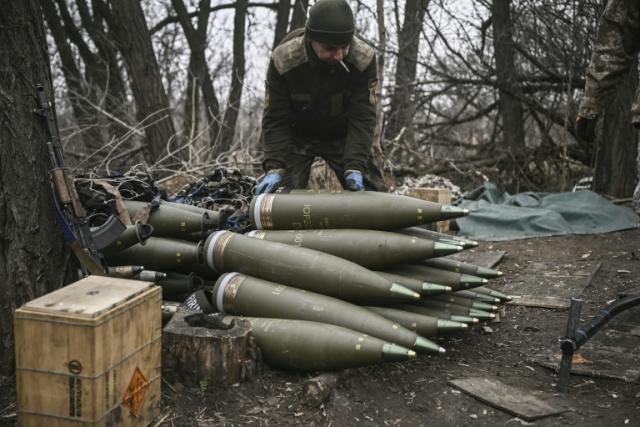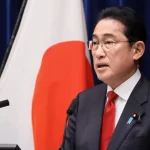Brussels: Diplomats reported that European Union foreign ministers agreed on a 2 Billion Euro plan to plunder their own arsenals and cooperatively purchase artillery shells for Ukraine.
At a meeting in Brussels, the ministers endorsed a multifaceted initiative – to be ratified by EU leaders at a summit this week – that seeks to provide Ukraine with one million shells over the next 12 months and replenish EU stockpiles.
As a result of Russia’s year-long invasion, which has evolved into a gruelling war of attrition, Kyiv has complained that its forces must ration firepower.
Ukraine has informed the EU that it needs 350,000 shells per month to help its soldiers repel Moscow’s onslaught and initiate new counteroffensives later in the year.
Ukrainian Foreign Minister Dmytro Kuleba exhorted in a social media post, “More artillery ammunition for Ukraine as soon as possible.”
Catherine Colonna, foreign minister of France, insisted, “We must help Ukraine more, faster, and now.”
The first component of the plan commits an additional one billion euros ($1.06 billion) in shared financing to encourage EU states to access their already depleted stocks of rapid-deployment ammunition.
In the second phase, the bloc would spend an additional one billion euros to purchase 155-millimeter projectiles for Ukraine as part of a vast joint procurement initiative designed to encourage EU defence firms to increase production.
This is a significant new step for the EU, whose long-standing efforts to work more closely together on defence have been accelerated by Russia’s conflict.
Countries have been arguing over specifics, such as whether the EU’s defence agency or the member states should negotiate orders and whether they should only purchase from European manufacturers.
Diplomats reported that the plan calls for the shipment of the initial one billion euro worth of munitions to Ukraine by the end of May and the signature of the joint contracts by the beginning of September.
Gabrielius Landsbergis, the foreign minister of Lithuania, stated that the goal was to supply one million cartridges over the course of the next year, but that this goal was not set in stone.
“It is possible that we won’t be able to accomplish it,” he conceded.
How much is held in stocks?
After 12 months of depleting their reserves, it is unclear how much the EU countries can promptly share without exposing themselves to risk.
The bloc has already committed 12 billion euros worth of military assistance to Ukraine, with 3.6 billion euros from a joint fund helping to cover the costs.
Since the Russian invasion in February, 450 million euros from the fund have reportedly been used to supply 350 thousand munitions to Ukraine.
The key to compelling nations to deplete their stocks is persuading them that the European industrial sector can produce more.
Currently, Ukraine’s consumption of ammunition far exceeds what its Western supporters produce.
After cutting back in the years following the end of the Cold War, the EU, according to Brussels, must revert to “war economy mode.”
Governments have not yet signed the long-term contracts necessary for the industry to invest in additional production lines.
The EU hopes that placing a massive joint order for 155-mm projectiles will encourage manufacturers to increase production.
However, there are concerns regarding the availability of essential components such as pyrotechnics.
“We are accustomed to producing for peacetime, but now we are at war in Europe,” said Finnish Foreign Minister Pekka Haavisto.
Also read: In Islamabad, Pakistani police arrested Imran Khan’s nephew
Obviously, this will take time, and there is also a paucity of resources, etc.
It has begun reaching out to 15 companies in 11 EU nations that produce ammunition to encourage them to move forward.
Brussels has stated that it intends to eliminate regulatory obstacles, facilitate access to financing, and even provide central EU funds for capacity enhancement.
However, according to a number of European diplomats, the proposals remain ambiguous and their capitals require additional assurances that they will have an effect.




